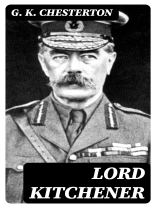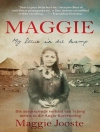In ‘Lord Kitchener, ‘ G. K. Chesterton explores the complex figure of Lord Horatio Kitchener, a pivotal military leader during the First World War. With his characteristic wit and incisive prose, Chesterton delves into themes of duty, heroism, and national identity. The book reflects the uncertainties of its time while also critiquing the romanticized notions of warfare, set against the backdrop of early 20th-century British society. Chesterton’s literary style is marked by his unique blend of sharp observation and a poetic sensibility, creating a narrative that is at once historical and profoundly humanistic. G. K. Chesterton, an influential English writer, philosopher, and journalist, penned numerous works on social, political, and religious themes. His own experiences and keen understanding of the zeitgeist informed his exploration of figures like Kitchener. A staunch defender of traditional values and a critic of modernity, Chesterton imbues his portrayal of Kitchener with both admiration and skepticism, examining the paradoxes inherent in leadership during tumultuous times. ‘Lord Kitchener’ is a compelling read for anyone interested in the interplay of biography and history, offering insights into the mind of a military icon while questioning the broader implications of war. Chesterton’s insightful analysis invites readers to reflect on the nature of heroism and the weight of legacy, making this book a timeless exploration of the human condition.
เกี่ยวกับผู้แต่ง
Gilbert Keith Chesterton (1874-1936) was an eminent English writer, philosopher, and literary critic known for his prolific and diverse output. Chesterton’s work spans various genres, including journalism, philosophy, poetry, biography, Christian apologetics, and detective fiction. Among his influential writings, ‘Lord Kitchener, ‘ published in 1917, contributes to his reputation as a biographer and commentator on contemporary figures. Chesterton’s literary style combines wit, paradox, and a joyful sense of wonder, often challenging popular beliefs with keen observation and a distinctive narrative voice. A defender of Christian beliefs and traditional values, Chesterton’s apologetic writings, such as ‘Orthodoxy’ (1908), remain central to Christian literature. His fictional series featuring the Roman Catholic detective Father Brown is celebrated for its insightful exploration into human nature and morality. With over 80 books, several hundred poems, 200 short stories, and 4000 essays, Chesterton’s body of work has left a lasting mark on English literature. His contributions extend to social criticism as well, as seen in works like ‘What’s Wrong with the World’ (1910), offering critiques of contemporary socio-economic systems. Chesterton’s influence is widespread, touching the minds of readers and writers alike, including notable figures such as C.S. Lewis and Ernest Hemingway. His knighthood shortly before his death commemorates a legacy that transcends the literary field, commemorating a life devoted to the pursuit of truth and beauty through the written word.












